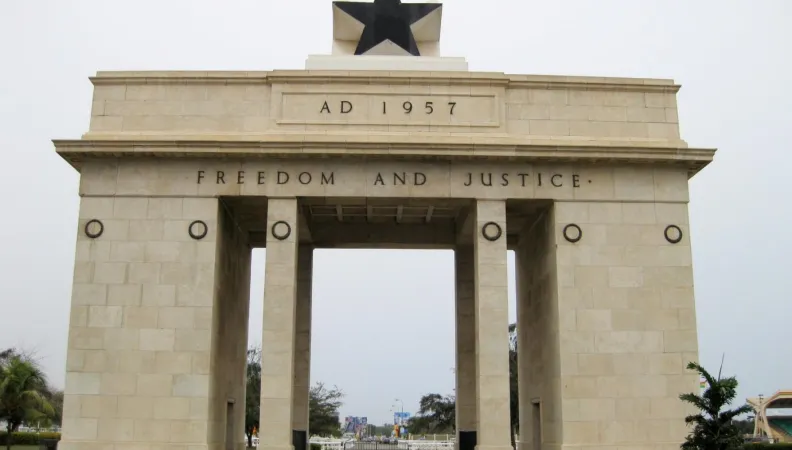Share the page
Evaluation of Budget Support to Ghana

-
Project start date
-
2016Status
Completed
-
Project end date
-
2017
-
Project duration
-
1 year and 4 months
-
Country and region
-
Location
-
Ghana
-
Research program
This multi-donor evaluation makes it possible to assess 10 years of assistance to Ghana in the form of budget support. It concludes that, despite much progress made, the outcomes proved to be disappointing in the end. This was due in particular to the deterioration over time of the partnership between the Government of Ghana and the donors.
Context
The evaluation of budget support in Ghana was commissioned by the European Commission (EuropeAid) and the Independent Evaluation Group (IEG) of the World Bank. It has been co-managed with representatives from Denmark (DANIDA), Germany (BMZ), France (AFD/EVA) and the Government of Ghana (Ministry of Finance). It focused on all budget support operations in Ghana between 2005 and 2015, amounting to 3.4 billion dollars in general budget support and 1 billion dollars in sector budget support (mainly health, education, decentralization, agriculture and the environment-natural resources). AFD support concerned the general budget support financed from C2D resources (3 support projects for 63 million euros) and via a loan (1 support project for 30 million euros), as well as a sector budget loan of 5 million euros in the environment and natural resources sector.
Goal
The objective of the evaluation was to assess the extent to which the budget support contributed to development outcomes, following assistance to the Government of Ghana in strengthening the implementation of its strategies and in improving the effectiveness and efficiency of its public spending and its policies. This evaluation was of particular interest. Indeed, the highly structured framework established in Ghana for the general budget support (Multi-Donor Support Budget – MDBS), which had often been presented as a model, did not prevent the country from experiencing major macro-economic problems.
Method
The evaluation was based on the methodological approach for evaluating budget support (in French) of the OECD/DAC Evaluation Network. It was carried out by a team made up of Particip (a German firm contracted by EuropeAid) and IEG evaluators. The approach used had three steps. The Step 1 sought to evaluate the components of the budget support (financing, policy dialogue and support for capacity building) and their effects on Ghana’s public policies. Step 2 sought to evaluate the results and impacts as well as their determinants. Finally, Step 3 sought to make a synthesis of the previous steps and to make a conclusion on the way in which the budget support contributed to the changes observed in the partner country.
For this evaluation, the evaluation questions related to Step 1 focused on :
- the relevance of budget support design;
- its effect on the resources made available to Ghana;
- its effect on macro-economic management and public finance management; and
- its effect on the development and implementation of public policies.
Step 2 focused on the health, agriculture, environment and natural resources sectors. For each of these sectors, the evaluators sought to identify the development outcomes obtained and to analyze their underlying factors, including public policy supported by the budget support.
Results
The MDBS framework had significant direct effects on aid architecture. Budget support (BS) had strong effects on policy formulation and implementation BS was not the main driver of the reforms, but it gave Ghana opportunities to accelerate the reform agenda all the while strengthening its ownership. The technical support (of which there was a considerable amount) as well as the policy dialogue helped consolidate the process of transition to an middle-income oil-producing economy. However, they were not able to prevent serious deterioration in the macro-economic situation in the second part of the period. The dialogue on public finance management did not lead to implementation of the major reforms required. In most sectors, the structural changes were limited, albeit public services were strengthened overall. In the last few years, progress slowed down in many fields. The strong growth was above all the outcome of a favorable external environment (high prices for gold and cacao) and of oil production, rather than due to improvement in the business climate or to a big rise in agricultural productivity, which had been initially forecast in the strategy. At the end of the period, the BS contributed to a return to macro-economic stabilization in Ghana.
Lessons learned
The factors that have hampered all the opportunities created by BS being put to good use are related to the country’s political economy (short electoral cycle, complex dynamics concerning the public wage bill, clientelist and patronage systems that resist at the local and national levels). In addition, commitment by donors and the Government to BS considerably decreased over the period. Some donors, for example, have changed their overall policy and have given up BS for other forms of aid. As for decline in Government commitment, the reasons put forward are Ghana's shift to MIC status, access to new sources of financing, and the discovery of new oil resources.
The report and its annexes are published on the EuropeAid website.
Contact : Corinne de Peretti, evaluation officer (deperettic@afd.fr)
